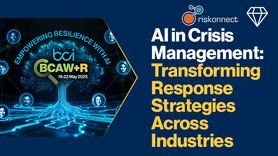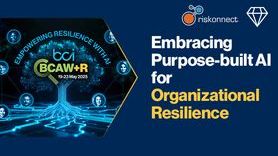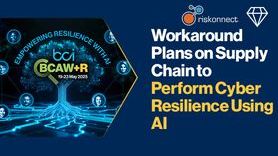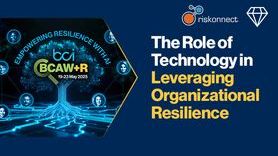Digital transformation, development and resilience in West Africa
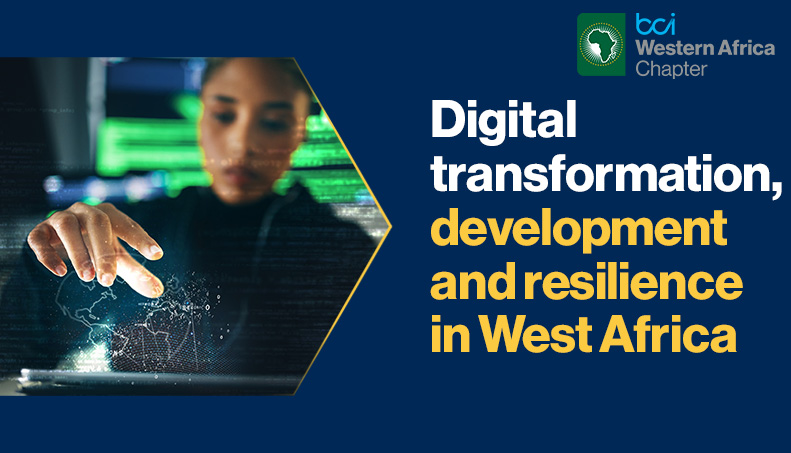
Digital transformation and development is both a challenge and an opportunity for resilience professionals in Western Africa. As the digital field rapidly changes and evolves in the region, the young resilience industry is working hard to adapt and face its growing pressures.
This article, written by the Western Africa Chapter, examines digital transformation, its developments, and how it affects Western Africa’s resilience.
The rise of digital transformation
Over the past few years there has been a rise in the number of digital transformation initiatives across organizations in Western Africa, largely spearheaded by a young workforce and increasingly available internet access. As a result, many countries in the region have seen a huge rise in digital transformation and an accompanying positive impact on their GDP. However, digital transformation is still in its infancy and large strides are expected in the future as more organizations roll out digital initiatives.
In 2021 the Economic Commission of West Africa States (ECOWAS) launched the Regional Cybersecurity and Cybercrime Strategy[1], which outlined strategic objectives to strengthen cybersecurity including the adoption of national cybersecurity strategies, building cyber security developments and capacity, and prioritising cybersecurity efforts for critical infrastructures and essential services. Alongside this, other digital transformation policies are underway in West African states. For example, in Nigeria, the Federal Ministry of Communications, Innovation & Digital Economy has several digital transformation efforts in progress with the objective of raising productivity levels across sectors through the application of technology, and in Ghana, the government has implemented the Ghana Digital Acceleration Project. Other similar projects are being implemented across the West African region and currently one of the most prominent areas of digital transformation is in the financial space. An example of this is the wide proliferation of FinTech apps on mobile phones that enables money transfer, as opposed to the use of paper money. The use of mobile money has dramatically scaled up business transactions across the region.
Chapter leader Tunde Dada said:
“The impact of digitization is hugely positive across all areas where it is applied. It immediately opens up possibilities that were not available in the pre-digitalised world and this effect is noticeable across all sectors. For example, it makes service delivery immediately available to the end users. In the health sector, a patient that has been waiting for weeks to see a GP can be allocated an available GP in digital format and cut weeks of further waiting. In Nigeria, digitisation has led to digital e-medicines where patients can get verified prescriptions online, reducing the issues of overcrowding at hospitals.”
The challenges business continuity and resilience practitioners face
Although the fast-paced digital transformation has boosted the economy and created positive impacts, it has also created challenges for resilience professionals.
Areas of concern include the rise in large scale scam operations and online fraud cases, and the increasing sophistication of these cyber-crimes, across the region in response to increased digital footprints. The sudden growth of digitalisation has meant Western Africa currently lacks available skills, expertise, and resources to manage cybersecurity complexities, and this means many states have been unable to manage the levels and sophistication of cyber-security crime. For example, as a result of cyber-attacks on West African government internet infrastructures, Nigeria alone has suffered an estimated $2.4 billion in annual loss since January 2024.
Alongside the lack of skills and resources another of the main challenges to resilience is that transformation policies are not regulatory, most are largely public-private initiatives, which means they are not consistently implemented, or they lack enforcement from legal and regulatory frameworks to ensure organizations are protected from threats. Without regulations, resilience practitioners find it difficult to gain attention from top management to invest in resilience programmes.
Implementing digitalisation
Despite these challenges, the resilience profession has a lot to gain from digitalisation. For example, government digital transformation polices, although unenforced, can help to push the topic to top management’s attention to leverage investment in resilience, and they create strong guidelines or frameworks to inform business continuity plans.
Digitalisation resilience is in its early stages in Western Africa, but across most states, small business startups have pushed the transformation. Their strategies have seen many startups, especially in the financial and entertainment industries, push the frontiers of digitalisation by harnessing Western Africa’s young population, and their interest in digitalisation, to implement resilience strategies.
Leader Tunde believes another way to improve resilience is encouraging more youth into the resilience profession across the region, to ensure new academic knowledge is leveraged by resilience professionals.
Tunde said:
“There is definitely a great future for digital transformation in West Africa despite the current challenges. The continuous rise in the number of youths within this economic block and increasing internet penetration will undoubtedly continue to help the growth in West Africa.”
Advice from the Chapter
Business continuity and resilience practitioners implementing digitalisation in organizations face numerous challenges. Chapter leader Tunde’s piece of advice is:
“I would advise professionals undertake a thorough assessment of the environment before deploying any digital transformation. The professional should carry out a risk assessment that takes into consideration the technological requirements that would be required and the continued support for the platform.
We warmly welcome practitioners in the Western Africa region, who are looking to expand their networks, share knowledge, and support the resilience industry, to join our Chapter.”
You can join the Western Africa Chapter here or on their LinkedIn page.

















